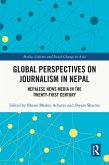44,95 €
44,95 €
inkl. MwSt.
Sofort per Download lieferbar

22 °P sammeln
44,95 €
Als Download kaufen

44,95 €
inkl. MwSt.
Sofort per Download lieferbar

22 °P sammeln
Jetzt verschenken
Alle Infos zum eBook verschenken
44,95 €
inkl. MwSt.
Sofort per Download lieferbar
Alle Infos zum eBook verschenken

22 °P sammeln
- Format: ePub
- Merkliste
- Auf die Merkliste
- Bewerten Bewerten
- Teilen
- Produkt teilen
- Produkterinnerung
- Produkterinnerung

Bitte loggen Sie sich zunächst in Ihr Kundenkonto ein oder registrieren Sie sich bei
bücher.de, um das eBook-Abo tolino select nutzen zu können.
Hier können Sie sich einloggen
Hier können Sie sich einloggen
Sie sind bereits eingeloggt. Klicken Sie auf 2. tolino select Abo, um fortzufahren.

Bitte loggen Sie sich zunächst in Ihr Kundenkonto ein oder registrieren Sie sich bei bücher.de, um das eBook-Abo tolino select nutzen zu können.
This book uncovers and explains the ways by which politics is naturalized and denaturalized, and familiarized and de-familiarized through popular media.
- Geräte: eReader
- mit Kopierschutz
- eBook Hilfe
Andere Kunden interessierten sich auch für
![Japanese Visual Media (eBook, PDF) Japanese Visual Media (eBook, PDF)]() Jennifer CoatesJapanese Visual Media (eBook, PDF)44,95 €
Jennifer CoatesJapanese Visual Media (eBook, PDF)44,95 €![Cultural Intermediaries in East Asian Film Industries (eBook, ePUB) Cultural Intermediaries in East Asian Film Industries (eBook, ePUB)]() Cultural Intermediaries in East Asian Film Industries (eBook, ePUB)44,95 €
Cultural Intermediaries in East Asian Film Industries (eBook, ePUB)44,95 €![Media in Asia (eBook, ePUB) Media in Asia (eBook, ePUB)]() Media in Asia (eBook, ePUB)40,95 €
Media in Asia (eBook, ePUB)40,95 €![Japanese Adult Videos in Taiwan (eBook, ePUB) Japanese Adult Videos in Taiwan (eBook, ePUB)]() Heung-Wah WongJapanese Adult Videos in Taiwan (eBook, ePUB)49,95 €
Heung-Wah WongJapanese Adult Videos in Taiwan (eBook, ePUB)49,95 €![Chinese Film in the Twenty-First Century (eBook, ePUB) Chinese Film in the Twenty-First Century (eBook, ePUB)]() Chinese Film in the Twenty-First Century (eBook, ePUB)40,95 €
Chinese Film in the Twenty-First Century (eBook, ePUB)40,95 €![Japanese Film and the Challenge of Video (eBook, ePUB) Japanese Film and the Challenge of Video (eBook, ePUB)]() Tom MesJapanese Film and the Challenge of Video (eBook, ePUB)42,95 €
Tom MesJapanese Film and the Challenge of Video (eBook, ePUB)42,95 €![Global Perspectives on Journalism in Nepal (eBook, ePUB) Global Perspectives on Journalism in Nepal (eBook, ePUB)]() Global Perspectives on Journalism in Nepal (eBook, ePUB)44,95 €
Global Perspectives on Journalism in Nepal (eBook, ePUB)44,95 €-
-
-
This book uncovers and explains the ways by which politics is naturalized and denaturalized, and familiarized and de-familiarized through popular media.
Dieser Download kann aus rechtlichen Gründen nur mit Rechnungsadresse in A, B, BG, CY, CZ, D, DK, EW, E, FIN, F, GR, HR, H, IRL, I, LT, L, LR, M, NL, PL, P, R, S, SLO, SK ausgeliefert werden.
Produktdetails
- Produktdetails
- Verlag: Taylor & Francis eBooks
- Seitenzahl: 232
- Erscheinungstermin: 12. August 2021
- Englisch
- ISBN-13: 9781000426007
- Artikelnr.: 62087379
- Verlag: Taylor & Francis eBooks
- Seitenzahl: 232
- Erscheinungstermin: 12. August 2021
- Englisch
- ISBN-13: 9781000426007
- Artikelnr.: 62087379
- Herstellerkennzeichnung Die Herstellerinformationen sind derzeit nicht verfügbar.
Jennifer Coates is a senior lecturer in Japanese studies in the School of East Asian Studies, University of Sheffield, UK.
Eyal Ben-Ari is director of the Kinneret Center for Society, Security and Peace, Israel.
Eyal Ben-Ari is director of the Kinneret Center for Society, Security and Peace, Israel.
Introduction JENNIFER COATES AND EYAL BEN- ARI SECTION A Historical contexts 1 A question of form: dissent and the nouvelle vagueISOLDE STANDISH 2 Negotiating sex, the bizarre, and politics: the Abe Sada incident in
lms KATSUYUKI HIDAKA 3 The four lives of Matsugor
the Lawless: agency, constraint, and what is "worthy" of
lm censorship in trans-war Japan IRIS HAUKAMP 4 Tarzan and Japan: racial portraits of a nation in Boy Kenya DEANNA T. NARDY SECTION B Critique, contestation, and resistance 5 Down in the dumps: Tokyo wastelands and marginalized groups in Japanese
lm and anime ALISA FREEDMAN 6 Cinema at the edge of the world: visions of precarity in the
lms of Kumakiri Kazuyoshi LINDSAY NELSON 7 How to remember 3.11? Post-Fukushima documentary and the politics of T
hoku Documentary Trilogy (2011-2013) RAN MA SECTION C Creating the political subject through media 8 The Japanese self-defence forces and cinematic productions: resonance and reverberation in the normalization of organized state violence ATSUKO FUKUURA AND EYAL BEN-ARI 9 Politicizing the audience? Film fans' experiences of cinema in the 1960s JENNIFER COATES 10 Fading away from the screen: cinematic responses to queer ageing in contemporary Japanese cinema YUTAKA KUBO
lms KATSUYUKI HIDAKA 3 The four lives of Matsugor
the Lawless: agency, constraint, and what is "worthy" of
lm censorship in trans-war Japan IRIS HAUKAMP 4 Tarzan and Japan: racial portraits of a nation in Boy Kenya DEANNA T. NARDY SECTION B Critique, contestation, and resistance 5 Down in the dumps: Tokyo wastelands and marginalized groups in Japanese
lm and anime ALISA FREEDMAN 6 Cinema at the edge of the world: visions of precarity in the
lms of Kumakiri Kazuyoshi LINDSAY NELSON 7 How to remember 3.11? Post-Fukushima documentary and the politics of T
hoku Documentary Trilogy (2011-2013) RAN MA SECTION C Creating the political subject through media 8 The Japanese self-defence forces and cinematic productions: resonance and reverberation in the normalization of organized state violence ATSUKO FUKUURA AND EYAL BEN-ARI 9 Politicizing the audience? Film fans' experiences of cinema in the 1960s JENNIFER COATES 10 Fading away from the screen: cinematic responses to queer ageing in contemporary Japanese cinema YUTAKA KUBO
Introduction
JENNIFER COATES AND EYAL BEN- ARI
SECTION A
Historical contexts
1 A question of form: dissent and the nouvelle vague
ISOLDE STANDISH
2 Negotiating sex, the bizarre, and politics: the Abe Sada incident in films
KATSUYUKI HIDAKA
3 The four lives of Matsugor the Lawless: agency, constraint, and what is "worthy" of film censorship in trans-war Japan
IRIS HAUKAMP
4 Tarzan and Japan: racial portraits of a nation in Boy Kenya
DEANNA T. NARDY
SECTION B
Critique, contestation, and resistance
5 Down in the dumps: Tokyo wastelands and marginalized groups in Japanese film and anime
ALISA FREEDMAN
6 Cinema at the edge of the world: visions of precarity in the films of Kumakiri Kazuyoshi
LINDSAY NELSON
7 How to remember 3.11? Post-Fukushima documentary and the politics of T hoku Documentary Trilogy
(2011-2013)
RAN MA
SECTION C
Creating the political subject through media
8 The Japanese self-defence forces and cinematic productions: resonance and reverberation in the normalization of organized state violence
ATSUKO FUKUURA AND EYAL BEN-ARI
9 Politicizing the audience? Film fans' experiences of cinema in the 1960s
JENNIFER COATES
10 Fading away from the screen: cinematic responses to queer ageing in contemporary Japanese cinema
YUTAKA KUBO
JENNIFER COATES AND EYAL BEN- ARI
SECTION A
Historical contexts
1 A question of form: dissent and the nouvelle vague
ISOLDE STANDISH
2 Negotiating sex, the bizarre, and politics: the Abe Sada incident in films
KATSUYUKI HIDAKA
3 The four lives of Matsugor the Lawless: agency, constraint, and what is "worthy" of film censorship in trans-war Japan
IRIS HAUKAMP
4 Tarzan and Japan: racial portraits of a nation in Boy Kenya
DEANNA T. NARDY
SECTION B
Critique, contestation, and resistance
5 Down in the dumps: Tokyo wastelands and marginalized groups in Japanese film and anime
ALISA FREEDMAN
6 Cinema at the edge of the world: visions of precarity in the films of Kumakiri Kazuyoshi
LINDSAY NELSON
7 How to remember 3.11? Post-Fukushima documentary and the politics of T hoku Documentary Trilogy
(2011-2013)
RAN MA
SECTION C
Creating the political subject through media
8 The Japanese self-defence forces and cinematic productions: resonance and reverberation in the normalization of organized state violence
ATSUKO FUKUURA AND EYAL BEN-ARI
9 Politicizing the audience? Film fans' experiences of cinema in the 1960s
JENNIFER COATES
10 Fading away from the screen: cinematic responses to queer ageing in contemporary Japanese cinema
YUTAKA KUBO
Introduction JENNIFER COATES AND EYAL BEN- ARI SECTION A Historical contexts 1 A question of form: dissent and the nouvelle vagueISOLDE STANDISH 2 Negotiating sex, the bizarre, and politics: the Abe Sada incident in
lms KATSUYUKI HIDAKA 3 The four lives of Matsugor
the Lawless: agency, constraint, and what is "worthy" of
lm censorship in trans-war Japan IRIS HAUKAMP 4 Tarzan and Japan: racial portraits of a nation in Boy Kenya DEANNA T. NARDY SECTION B Critique, contestation, and resistance 5 Down in the dumps: Tokyo wastelands and marginalized groups in Japanese
lm and anime ALISA FREEDMAN 6 Cinema at the edge of the world: visions of precarity in the
lms of Kumakiri Kazuyoshi LINDSAY NELSON 7 How to remember 3.11? Post-Fukushima documentary and the politics of T
hoku Documentary Trilogy (2011-2013) RAN MA SECTION C Creating the political subject through media 8 The Japanese self-defence forces and cinematic productions: resonance and reverberation in the normalization of organized state violence ATSUKO FUKUURA AND EYAL BEN-ARI 9 Politicizing the audience? Film fans' experiences of cinema in the 1960s JENNIFER COATES 10 Fading away from the screen: cinematic responses to queer ageing in contemporary Japanese cinema YUTAKA KUBO
lms KATSUYUKI HIDAKA 3 The four lives of Matsugor
the Lawless: agency, constraint, and what is "worthy" of
lm censorship in trans-war Japan IRIS HAUKAMP 4 Tarzan and Japan: racial portraits of a nation in Boy Kenya DEANNA T. NARDY SECTION B Critique, contestation, and resistance 5 Down in the dumps: Tokyo wastelands and marginalized groups in Japanese
lm and anime ALISA FREEDMAN 6 Cinema at the edge of the world: visions of precarity in the
lms of Kumakiri Kazuyoshi LINDSAY NELSON 7 How to remember 3.11? Post-Fukushima documentary and the politics of T
hoku Documentary Trilogy (2011-2013) RAN MA SECTION C Creating the political subject through media 8 The Japanese self-defence forces and cinematic productions: resonance and reverberation in the normalization of organized state violence ATSUKO FUKUURA AND EYAL BEN-ARI 9 Politicizing the audience? Film fans' experiences of cinema in the 1960s JENNIFER COATES 10 Fading away from the screen: cinematic responses to queer ageing in contemporary Japanese cinema YUTAKA KUBO
Introduction
JENNIFER COATES AND EYAL BEN- ARI
SECTION A
Historical contexts
1 A question of form: dissent and the nouvelle vague
ISOLDE STANDISH
2 Negotiating sex, the bizarre, and politics: the Abe Sada incident in films
KATSUYUKI HIDAKA
3 The four lives of Matsugor the Lawless: agency, constraint, and what is "worthy" of film censorship in trans-war Japan
IRIS HAUKAMP
4 Tarzan and Japan: racial portraits of a nation in Boy Kenya
DEANNA T. NARDY
SECTION B
Critique, contestation, and resistance
5 Down in the dumps: Tokyo wastelands and marginalized groups in Japanese film and anime
ALISA FREEDMAN
6 Cinema at the edge of the world: visions of precarity in the films of Kumakiri Kazuyoshi
LINDSAY NELSON
7 How to remember 3.11? Post-Fukushima documentary and the politics of T hoku Documentary Trilogy
(2011-2013)
RAN MA
SECTION C
Creating the political subject through media
8 The Japanese self-defence forces and cinematic productions: resonance and reverberation in the normalization of organized state violence
ATSUKO FUKUURA AND EYAL BEN-ARI
9 Politicizing the audience? Film fans' experiences of cinema in the 1960s
JENNIFER COATES
10 Fading away from the screen: cinematic responses to queer ageing in contemporary Japanese cinema
YUTAKA KUBO
JENNIFER COATES AND EYAL BEN- ARI
SECTION A
Historical contexts
1 A question of form: dissent and the nouvelle vague
ISOLDE STANDISH
2 Negotiating sex, the bizarre, and politics: the Abe Sada incident in films
KATSUYUKI HIDAKA
3 The four lives of Matsugor the Lawless: agency, constraint, and what is "worthy" of film censorship in trans-war Japan
IRIS HAUKAMP
4 Tarzan and Japan: racial portraits of a nation in Boy Kenya
DEANNA T. NARDY
SECTION B
Critique, contestation, and resistance
5 Down in the dumps: Tokyo wastelands and marginalized groups in Japanese film and anime
ALISA FREEDMAN
6 Cinema at the edge of the world: visions of precarity in the films of Kumakiri Kazuyoshi
LINDSAY NELSON
7 How to remember 3.11? Post-Fukushima documentary and the politics of T hoku Documentary Trilogy
(2011-2013)
RAN MA
SECTION C
Creating the political subject through media
8 The Japanese self-defence forces and cinematic productions: resonance and reverberation in the normalization of organized state violence
ATSUKO FUKUURA AND EYAL BEN-ARI
9 Politicizing the audience? Film fans' experiences of cinema in the 1960s
JENNIFER COATES
10 Fading away from the screen: cinematic responses to queer ageing in contemporary Japanese cinema
YUTAKA KUBO







